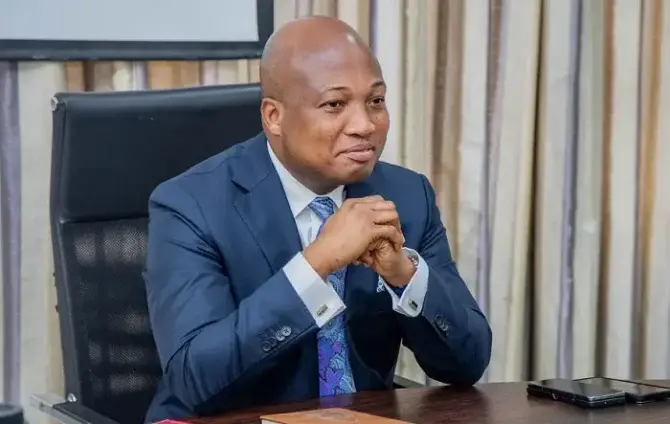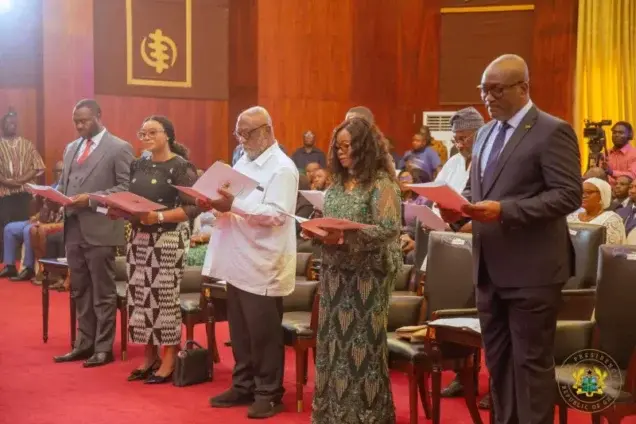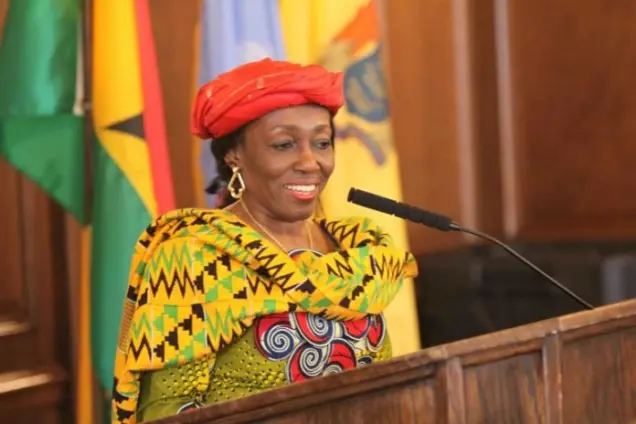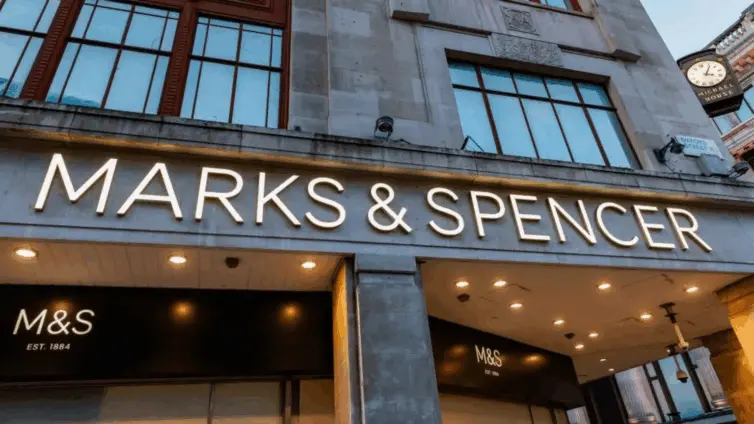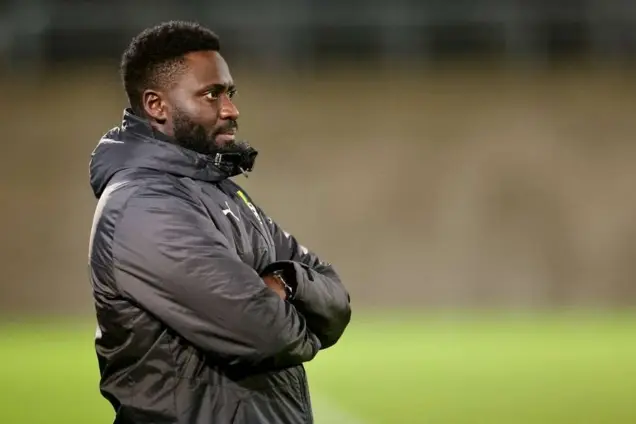Accra, Ghana – The Supreme Court of Ghana has dismissed a legal challenge brought by the Centre for Citizenship, Constitutional and Electoral Systems (CenCES), a civil society organization, regarding the suspension of the Chief Justice. The court’s decision now paves the way for a presidential committee to continue its investigation into potential misconduct allegations that led to the suspension. This legal battle has ignited discussions about judicial independence, the separation of powers, and the delicate balance between executive authority and the judiciary in Ghana.
The CenCES lawsuit specifically contested the constitutionality of the President’s action in suspending the Chief Justice, arguing that it violated several fundamental articles within Ghana’s 1992 Constitution. Legal experts closely followed the case, recognizing its potential to set a significant precedent for the suspension of high-ranking officials facing investigation. The core of the legal debate centered around Article 146, which details the procedures for the removal of a Chief Justice, and whether due process was followed. The Supreme Court’s ruling on the CenCES case has wide-ranging implications.
CenCES argued that the suspension infringed upon judicial independence, the right to a fair trial, and equal treatment under the law, citing Articles 125, 127, 17, and 19 of the 1992 Constitution. The organization further asserted that establishing a prima facie case against the Chief Justice did not adhere to the legal procedures outlined in Article 146 of the Constitution.
Specifically, CenCES sought several reliefs from the Supreme Court, including a declaration that the President’s suspension of the Chief Justice was unconstitutional. They also requested the invalidation of the formation of the removal committee, arguing that it stemmed from a lack of a lawfully determined prima facie case. Furthermore, CenCES sought a declaration that the suspension warrant issued by the President was arbitrary and invalid, along with an order to halt the removal committee’s hearings and investigations. The organization also requested restraining the Chief Justice from participating in the process due to conflict of interest concerns.
The Supreme Court, in a 4-1 majority decision, dismissed CenCES’s case, effectively upholding President Mahama’s decision to suspend the Chief Justice and allowing the committee’s work to proceed. Justice Yaw Asare Darko was the sole dissenter in the ruling. The five-member panel comprised Justices Paul Baffoe-Bonnie (Presiding), Issifu Omoro Tanko Amadu, Yonny Kulendi, Henry Anthony Kwofie, and Yaw Asare Darko.
The ruling allows the presidential committee to continue its investigation into the petitions against the Chief Justice. It reinforces the President’s power to suspend officials pending investigation, subject to constitutional constraints. This decision potentially sets a precedent for future cases involving the suspension of high-ranking officials. It underscores the complexities inherent in balancing the need for accountability with the protection of judicial independence.
Adding another layer to this complex legal situation, a private citizen, Theodore Kofi Atta-Quartey, also filed a lawsuit seeking to halt the removal proceedings against the Chief Justice. Atta-Quartey requested an interlocutory injunction on the work of the committee of inquiry established under Article 146 of the 1992 Constitution, arguing that the proceedings should be put on hold until his suit is fully determined. While both cases aim to halt the removal proceedings, they are filed by different entities: a civil society group versus a private citizen. Atta-Quartey specifically seeks an interlocutory injunction, focusing on the immediate halt of the committee’s work.
Latif Iddrisu, a Legal Affairs Correspondent for JoyNews, has been closely following the Supreme Court’s handling of both cases related to the Chief Justice’s removal. His reports highlight the intense public and legal scrutiny surrounding these proceedings.
The lawsuits and the Supreme Court’s decision raise important questions about the balance between executive power and judicial independence in Ghana. Legal experts may offer insights on how this case could shape future interpretations of the Constitution, particularly regarding the suspension and removal of high-ranking judicial officers. The CenCES lawsuit, though unsuccessful, has amplified the importance of clearly defined procedures and safeguards to protect the integrity of the judiciary.
The Supreme Court’s rejection of the CenCES case marks a significant moment in the ongoing legal saga surrounding the suspended Chief Justice. While the committee’s investigation can proceed, the underlying issues of judicial independence and constitutional interpretation remain central to the debate. The parallel lawsuit filed by Theodore Kofi Atta-Quartey adds another layer of complexity. Future developments will undoubtedly be closely watched as Ghana navigates these challenging legal and political waters, seeking to uphold both accountability and the principles of judicial autonomy.
Image Source: MYJOYONLINE












